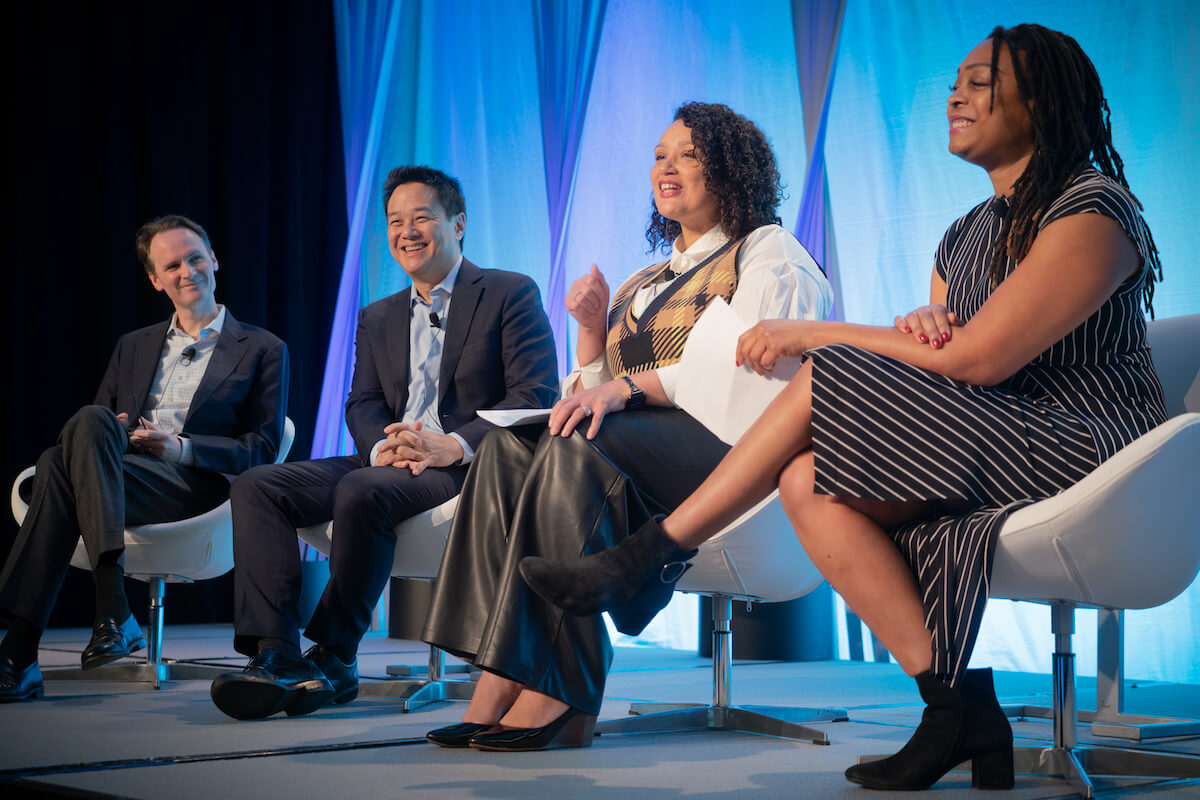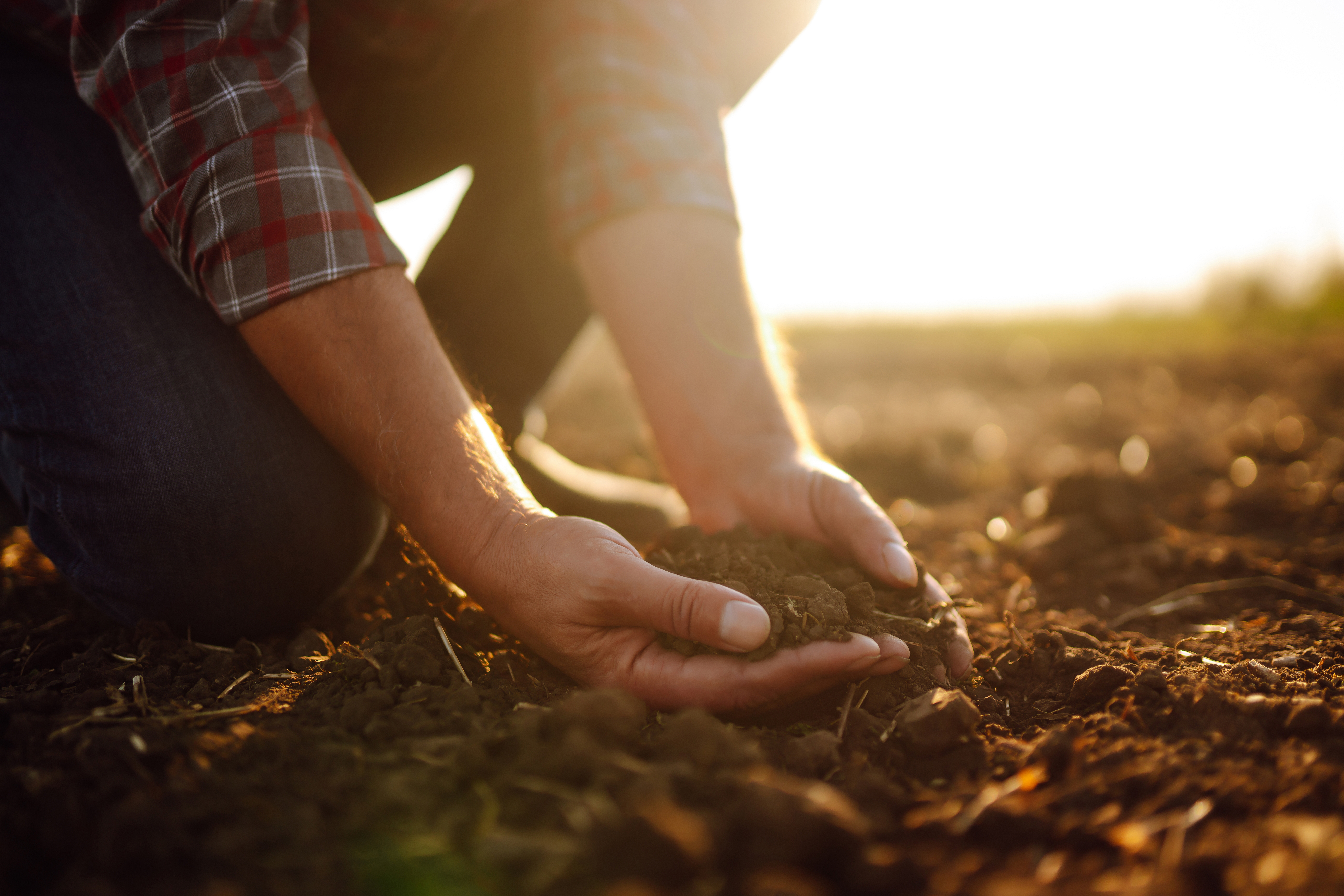Greetings, Agents of Impact!
Series: What’s Next
Agents of Impact respond to the call for new tools to reshape finance. Plutocrats and political leaders in Davos this week are grappling with a widespread feeling that capitalism must change. ImpactAlpha’s readers are already drawing on their experience to model what’s next. More than two dozen Agents of Impact responded to our call for ways to shift investor mindsets and behavior and drive systemic change. Amit Bouri of the Global Impact Investing Network kicked off the discussion in ImpactAlpha’s What’s Next series. “Impact investors are already modeling many of the behaviors that the broader financial community can emulate as society moves toward a new iteration of capitalism,” he wrote. Among the suggestions in Part 1 of our roundup:
- Put a value on natural capital. New Forests’ MaryKate Bullen calls for the “TCFD for nature,” a framework for valuing the “natural capital” contributions of forests and agriculture, modeled on the recommendations of the Task Force for Climate-Related Financial Disclosure. “Nature must be understood as capital,” she writes.
- Reward community-driven impact. RSF Social Finance’s Shu Dar Yao wants to test financial incentives for impact measurement to help investees demonstrate the community impact of their hard work.
- Embrace next-gen investors. Nia Impact Capital’s Kristin Hull says the wave of women and young people inheriting assets is here, “resulting in an increased demand for positively impactful financial products and instruments.”
- Muster evidence to combat impact-washing. The Impact Investing Institute, along with the Impact Management Project, is developing digital tools to allow investors to assess and compare the impact of their investments as mainstream asset managers jump on the impact bandwagon, writes the institute’s Sarah Gordon.
- Grade asset managers on impact. GAWA Capital Partners’ Luca Torre wants to see managers ranked in terms of impact intentionality, management and incentives – and their data-driven theories of change.
- Tailor products to investor intentions. Toniic’s Adam Bendell calls for investment products that differentiate between what he calls financial ESG motives, values alignment motives and impact contribution motives. “Imagine the market potential if it were easy for investors to select appropriate products based on their intention style!”
- Be transparent with impact data. Instilling faith and trust among investors, says John Burg of Dexis Consulting Group, will require firms to be more transparent about the data and evidence that backs up their claims of impact “without giving away their trade secrets to competing firms in the impact marketplace.”
“We are entering the decade of action, if we want to reimagine the world as it has never existed before: a world with no poverty, no hunger and no inequity,” writes Aavishkaar’s Vineet Rai. “To deliver this dream, we must act, and act in unison, with single purpose and goal to change the world.”
Keep reading, “Agents of Impact respond to the call for new tools to reshape finance (Part 1),” on ImpactAlpha.
- Catch up. Read Amit Bouri’s “Three ways asset owners can shift mindsets, incentives and portfolio theory.”
Dealflow: Follow the Money
IDH raises €100 million to catalyze smallholder farmer finance. Some 270 million smallholder farmers in Africa, Asia and Latin America produce more than three-quarters of the world’s food. At Davos, Netherlands-based IDH announced that its €100 million FarmFit fund will take high-risk positions in investments that help farmers invest in their farms and boost resilience and productivity. The fund, which will take the first losses in such investments, received support from USAID‘s $250 million loss-guarantee facility. The fund aims to catalyze up to €1 billion from banks and financial institutions and to “support sustainable smallholder farming while mitigating the impact of climate change,” said IDH’s Joost Oorthuizen. Supporters include Unilever, Jacobs DE, Mondelez and Rabobank, as well as the Dutch Ministry of Foreign Affairs.
- Embracing risk. Pools of catalytic capital such as the FarmFit fund “are relatively rare in capital markets today but are invaluable for the growth and scaling of impact enterprises and development of new impact industries,” the consultancy Tideline noted last spring (see, “Catalytic capital: Reshaping risks and rewards to make markets work in 2020“).
- Dig in.
Janngo raises €15 million for African startups targeting SDGs. The Capital Startup Fund is the second for Janngo, an Abidjan- and Paris-based tech ecosystem builder and investor, after a pilot fund in West Africa. At Davos, Janngo’s Fatoumata Bapledged to marshal €60 million ($66 million) for social enterprises across Africa, at least half of which will be founded or co-founded by women or benefit women. The European Investment Bank invested €15 million, allowing Janngo to make investments of €50,000 to €5 million in businesses mapped to the Sustainable Development Goals and their ability to create jobs for women and young people.
- Gender alpha. Just 7% of emerging market private equity and venture capital goes to female founders. Ba, who founded the African tech unicorn Jumia, is among a growing number of women-led or focused funds in Africa and other emerging markets (see, “Capital on the Frontier: Impact in emerging markets is a 2020 growth story”).
- Share this.
ArcTern Ventures raises $200 million clean tech fund. The Toronto-based venture capital firm sees a global clean tech sector “providing more investment opportunities than we ever thought possible only a few years ago,” said ArcTern’s Murray McCaig. New investors like Norwegian state-owned venture fund Nysno, and Canada’s Investissement Québec and Venture Capital Catalyst Initiative join existing institutional investors and family offices including OMERS, Equinor, TD Bank Group, Suncor, and BDC, a leading Canadian pension fund. More.
Center on Rural Innovation invests in coworking venture. The CORI Innovation Fund was launched as an Opportunity Zone fund last September to invest in growth businesses across rural America. Its first investment is in Proximity Space, a Montrose, Colo.-based coworking space that also provides software for other such spaces.
Saudi Aramco’s venture capital arm plans $500 million sustainable tech fund. The fund, Saudi Aramco Energy Ventures’s second, will invest in energy efficiency and renewable energy solutions around the world.
i(x) investments and Green Mesa Capital team up on housing initiative. With MultiGreen Properties, the impact investor and family office plan to construct 40,000 sustainable, entry-level housing units by 2030.
Agents of Impact: Follow the Talent
Andrew Siwo was appointed director of sustainable investment at the New York State Common Retirement Fund… Nancy Lindborg, previously of the U.S. Institute of Peace, is the new president of the David and Lucile Packard Foundation, succeeding Carol Larson, who stepped down at the end of 2019… Brinda Ganguly, ex- of Living Cities, joins Elevar Equity as chief operating officer… Lindsay Smalling is leaving her role as CEO of SOCAP on Mar. 31.
Fuse Corps is hiring a vice president, director of development and director of strategic partnerships in San Francisco… ClearlySo is looking for a consultant in London… British Columbia Investment Management Corp. seeks an ESG analyst in Victoria… The Public Voices Fellowship on the Climate Crisis is accepting applications for its inaugural writing fellowship.
Thank you for reading.
– Jan. 22, 2020











